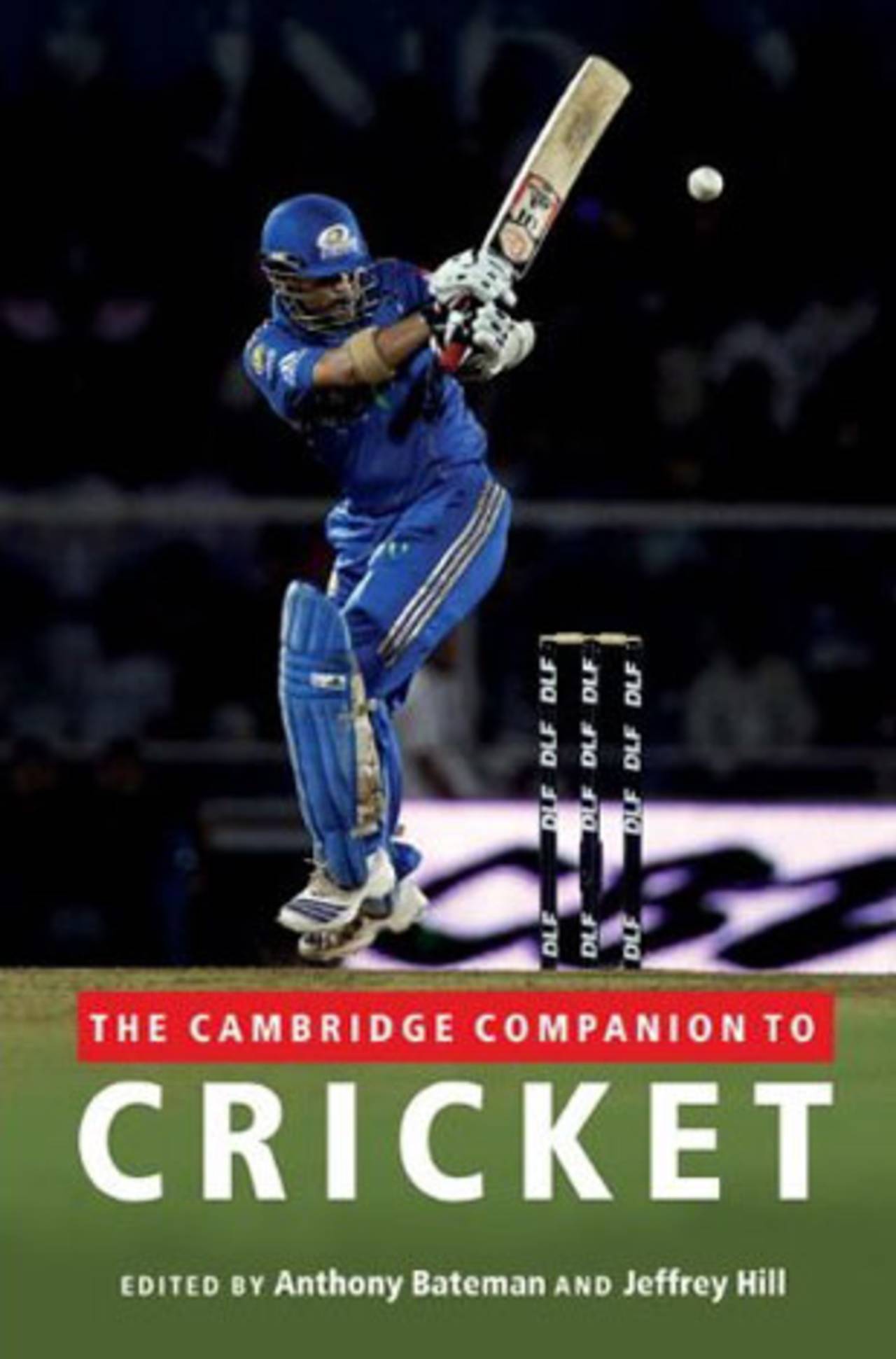Linking cricket's present to its past
Seventeen essays that make the familiar unfamiliar and vice-versa
Suresh Menon
May 15, 2011, 2:43 AM

Cambridge University Press
The mixture of continuity and unexpected change may not be unique to cricket, but it is a combination that is attractive to the traditional fan as well as the neophyte. A Sachin Tendulkar straight drive is both similar to and different from one by Victor Trumper; there is an engaging progression and a challenging variation. This book, a collection of essays united by little more than skilful writing and authority, accomplishes a dual task: it makes the familiar unfamiliar and vice-versa.
Hence those who still believe that match-fixing is a South Asian/South African crime of modern times only have to read David Frith's essay to learn that "modern cricket has yet to throw up anything quite of a magnitude to match the dishonourable deed of which William Lambert was adjudged guilty in 1818. What shocked the world... was that a match was thrown by the pre-eminent batsman in the land..." A few decades later, "so pure was cricket's image that it sometimes resembled a branch of Christianity".
And you thought you knew all about Don Bradman? In a charming reassessment, Tom Heenan and David Dunstan tell us that "Bodyline enabled Bradman to reinvent himself - accidentally - as the wronged and noble hero." More relevant to our times is this: "As an administrator [Bradman] was governed not by ideals but by the financial bottom line and the conviction that cricketing power was the preserve of a White, Anglo-Australian elite. If his views had prevailed, cricket might have been split along racial lines."
Those who might have found the rise of the IPL startling will understand the inevitability of it all thanks to Boria Majumdar's placing everything in context. Majumdar quotes the great Australian opener Arthur Morris, who when asked what he had gained from the game said "poverty". From there to a six-week tournament that fetches a player over a million dollars is both a continuum and a revolution. The IPL has turned India, according to the author, "into the nerve centre of the gentleman's game, completing the process of Indian cricket's decolonisation".
Cricket is fortunate that in every generation there have been enough chroniclers, many of whose writings aspired to literature. The critic Benny Green once said, "It is almost as though the game itself would not exist at all unless written about." In a delightful introduction to the book, the editors ask the question: Does cricket as a game possess some intrinsic qualities that explain why writers are attracted to it? Or has cricket attained its special position as a consequence of having been appropriated by men of letters?
You will find the answers, to some extent, in the 17 essays here. There is a broad theme if you join the dots in a particular way. That of change, of globalisation, of the political and cultural contexts. On the other hand, it can also been seen as a non-thematic approach to a sport that has both changed and remained the same. Reading the essays in any order is a rewarding experience.
The Cambridge Companion to Cricket
edited by Anthony Bateman and Jeffrey Hill
Cambridge University Press, £9.99

edited by Anthony Bateman and Jeffrey Hill
Cambridge University Press, £9.99
Suresh Menon is a writer based in Bangalore